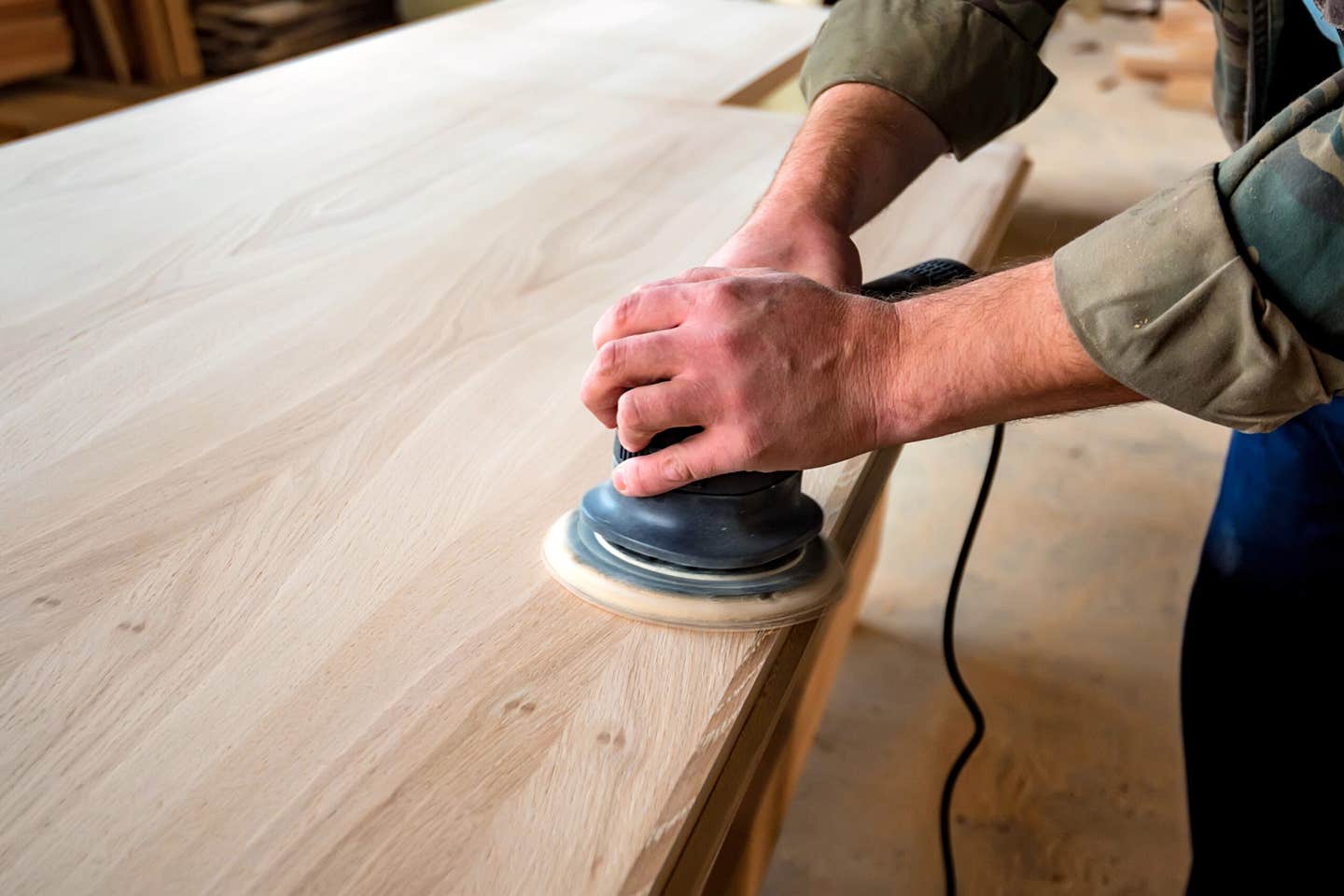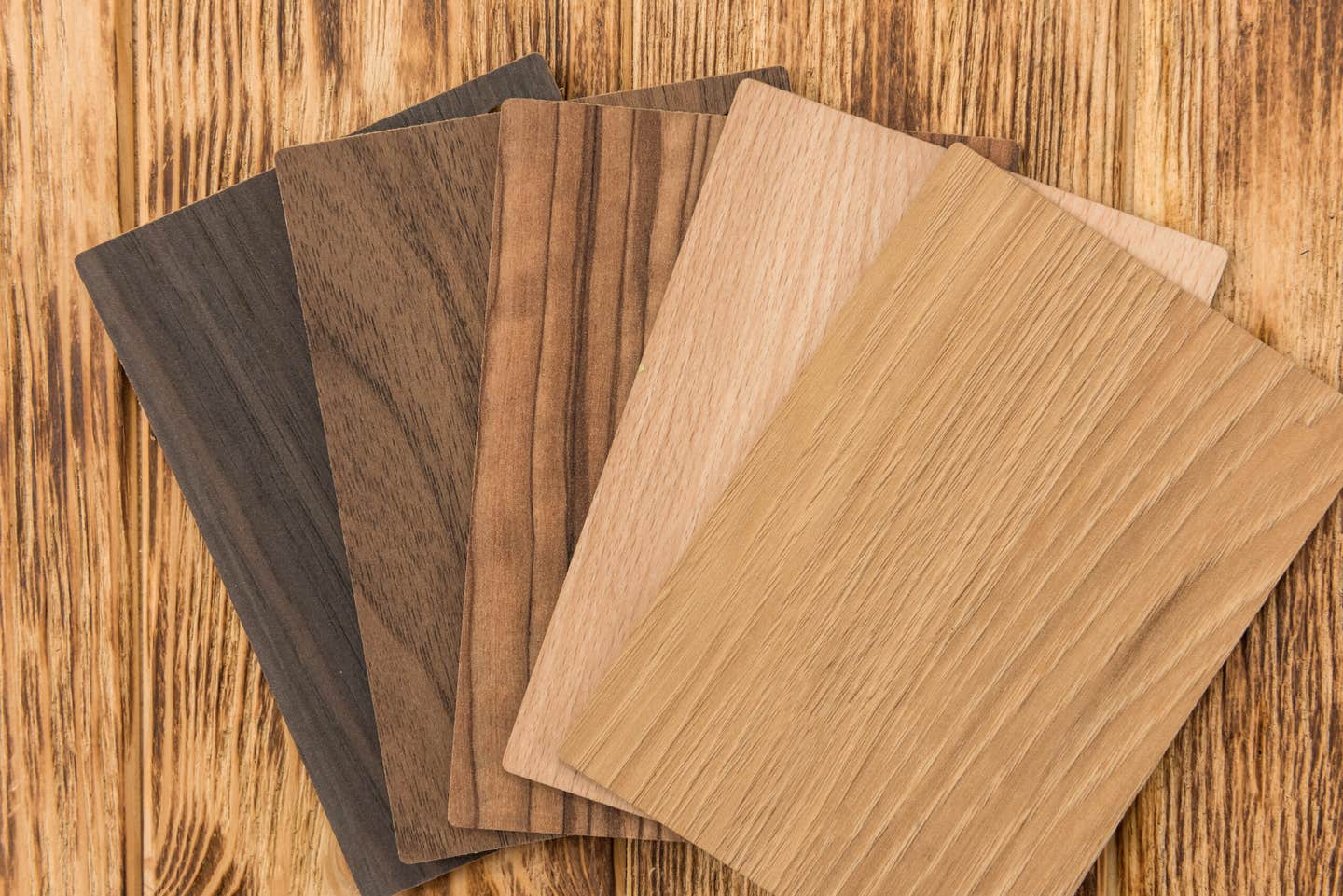Still charged up about his job
Custom furniture maker Ted Watts, principal of Watts Woodwork in Murrell’s Inlet, S.C., opened his first shop 35 years ago and hasn’t lost his passion for the creative side of…
Custom furniture maker Ted Watts, principal of Watts Woodwork in Murrell’s Inlet, S.C., opened his first shop 35 years ago and hasn’t lost his passion for the creative side of the craft. In fact, it might be burning brighter than ever.
“I love the artistic aspect of woodworking, especially when I get challenged to do something different,” Watts says. “I had a guy call me the other day and I had no idea what he wanted, but took on the project and he’s happy. I love when people call me and say that their idea sounds crazy, but want to give me their idea anyway.”
Watts says he has made more than 1,000 pieces. He started with commercial work, mostly for bars and restaurants, and specialized in spiral staircases for a time. But he’s always preferred making furniture on commission or for gallery sale. Dining room furniture has been a top seller lately. Cabinets to feature a flat-screen TV are popular, too.
Southern roots
The Watts go back to the 19th century in Myrtle Beach, where Ted’s father and maternal grandfather worked as contractors and paved the way for his woodworking career. Watts attended the Ringling School of Art in Florida and the Virginia Art Institute before settling in Murrells Inlet.
With his father and brother, he opened his first shop in 1978, mostly building tables for local restaurants.
“We do very little commercial work nowadays, except for an occasional decorative bar top,” says Watts. “I like residential work because it feels that gives me a better chance to show off and do unique and challenging projects.”
His primary market ranges north to Virginia Beach, Va., south to Savannah, Ga., and west through Tennessee.
“The most challenging part of the business is finding clients with the willingness to understand that a fine piece of furniture can last a lifetime and be handed down for generations. Some people still understand that, but most people don’t and only expect furniture to last four to five years. I was taught a long time ago by this lady who told me that she couldn’t afford fine furniture all through her house, but that she could afford one piece a year. Now her house is full of hand-made furniture, including my dining room table and a bed,” says Watts.
Watts says a typical order is a single piece of furniture that he designs about 98 percent of the time. He’s fulfilled requests for traditional and contemporary designs, but most clients prefer something in the middle. His work often features intricate carvings.
While most of his work comes through referrals, his website offers an extensive portfolio and retail purchases can be made at the Ebb & Flo Art Co-op, within walking distance to his shop.
Working solo
Watts has run a one-man shop for the majority of his career, only occasionally hiring part-time help when there’s quite a bit of sanding to be done. While working alone provides him with the bliss of making his own schedule, he admits it’s a challenge to keep pace with all facets of running a successful shop.
“Some [shop owners] don’t know the first thing about building cabinets or furniture, but they’re great salespeople. To do it by yourself, you need all of the woodworking skills and the sales ability to talk the person into what you want them to have. If you do it by yourself, you have to do it all. You have to have a vision of what it looks like before you put it on paper and then make the sale,” he says.”
His 7,200-sq.-ft. shop is nothing fancy — an old chicken coop off the main road — but it serves its purpose. His machinery includes a Rockwell 18” planer, Woodpecker 12” joiner, Rockwell/Delta table saw, Vega lathe, Jet dust collection, Laguna 16” band saw and a SCMI combination machine, featuring an 8’ sliding table saw, planer and joiner.
Watts draws by hand, applies hand-rubbed finishes and builds mostly with cherry, walnut, mahogany and knotty pine.
If he could start over, Watts says he would have built a shop behind his house and skipped the commercial work that got him started.
“Commercial work was better money, but I hate repetitious work,” he says. “My dream is to build a shop on the two lots behind my house and I’m looking into that now to move everything in that direction.”
Keeping busy
Watts is enjoying a steady volume of work after a difficult four-year stretch following the recession. He’s currently making about 15 furniture pieces a year.
“I’ve seen more return customers recently and things have picked up quite a bit. I’m getting better clientele and I’m not getting beaten down on the price. I used to make circular stairways and seriously considered doing them again because that was about all customers were asking for (after the recession). Someone called me up the other day so I gave them a price just to keep busy.”
Watts says no matter how the economy is performing, he tries to keep his pricing consistent, which is calculated by him guessing how long it’s going to take to build the piece. He says he needs to charge $50 an hour to make a profit.
“In the area where I am, advertising would be good, but I don’t have the luxury to charge people enough money to afford advertising. I have to get my prices down so low that I usually just break even.”
In his spare time, Watts enjoys time with his family and on the water. He’s been surfing since he was 9 and is a longtime competitive member of the Eastern Surfing Association.
“I would never be able to retire because I love my hobbies too much,” he says. “I would like to teach someday if I can set up my shop to do it.”
Contact: Watts Woodwork, 4775 Highway 17, Murrells Inlet, SC 29576. Tel: 843-907-4453. www.tedwattsfurnituremaker.com
This article originally appeared in the February 2014 issue.







